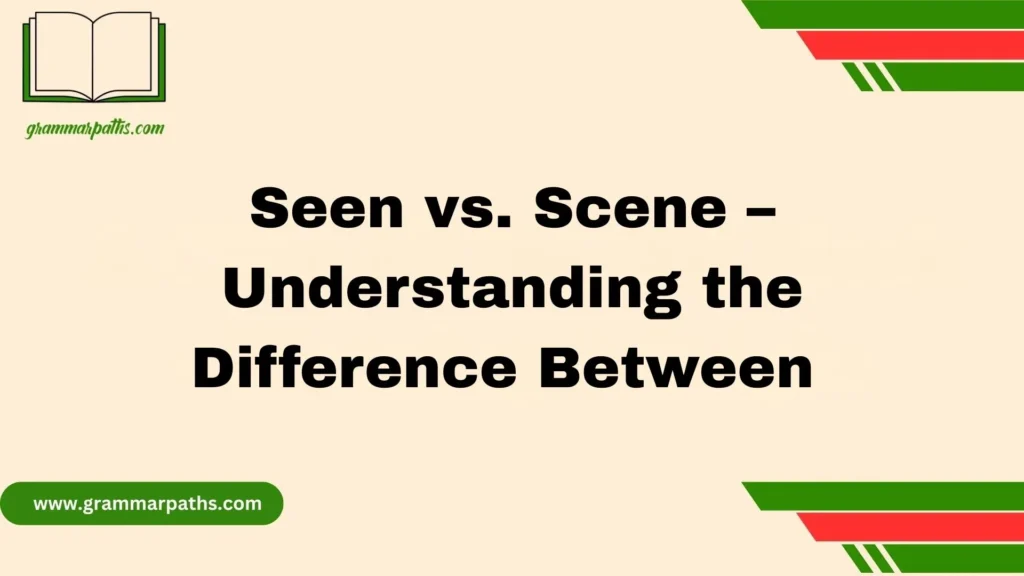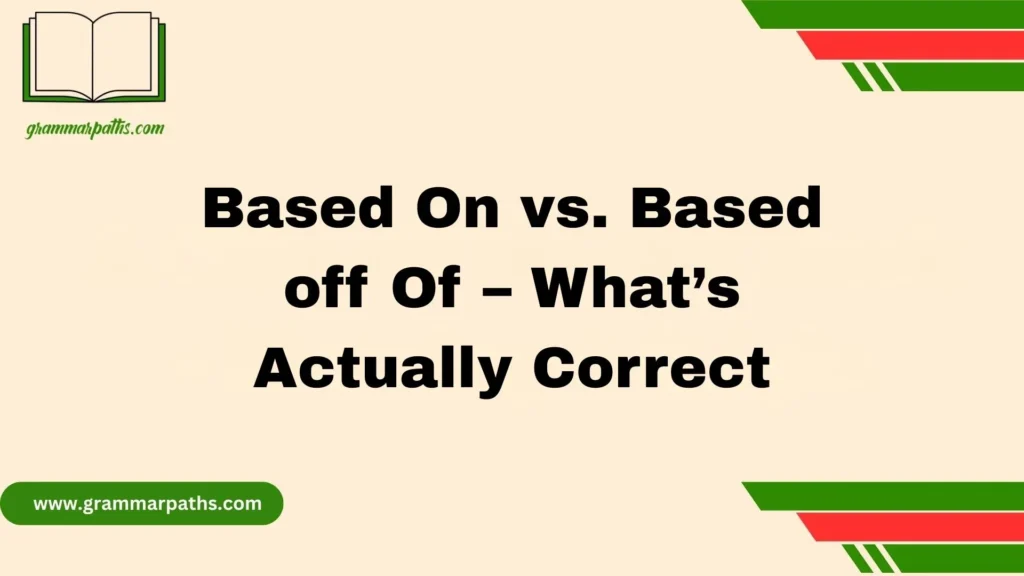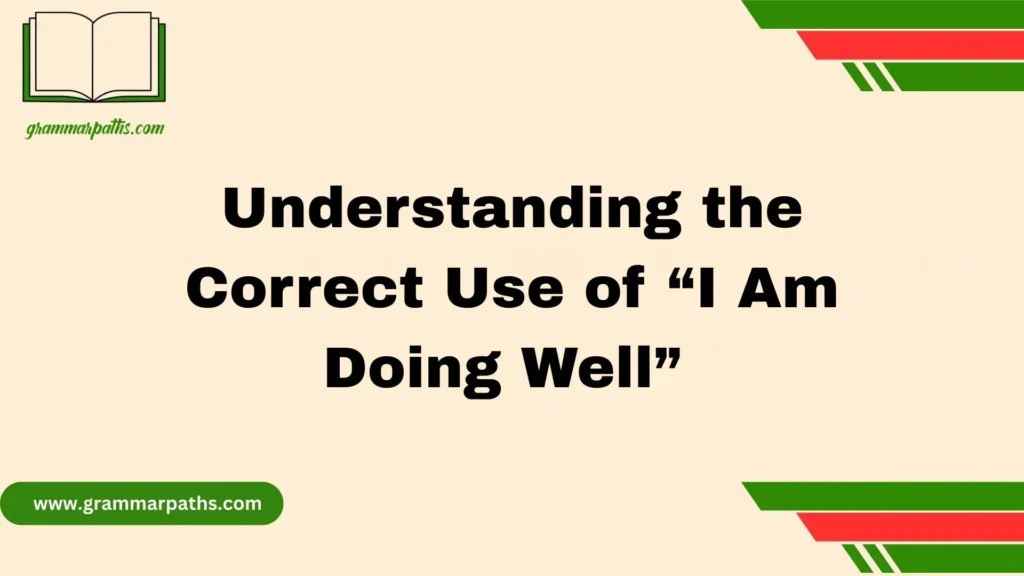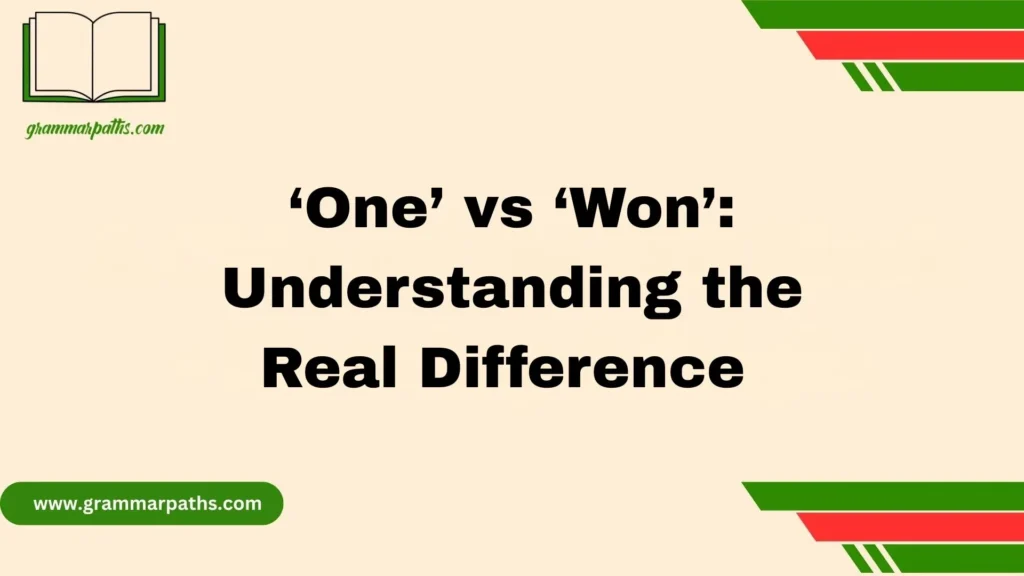When I first heard people say off of, I honestly thought it sounded odd. But over time, I realized this phrase is commonly used in spoken American English and even appears in some written forms. It’s an idiomatic expression, meaning it doesn’t always follow strict grammar rules but still feels natural to native speakers. Many grammarians are torn on whether it’s truly grammatically correct or not. Some argue that the preposition “of” is unnecessary, while others say it helps make the sentence clearer. For example, someone might say, “The cat jumped off of the table,” and although simply saying “off the table” works fine, both sound acceptable to most American ears.
In British English, the use of “off of” is less common and sometimes viewed as informal or colloquial. Still, it’s considered part of standard English in the US, even if its grammatical status remains unclear. From my own experience as a writer, I’ve noticed that choosing between “off” and “off of” depends on tone and flow—much like deciding whether a phrase is truly necessary or just stylistic. At times, the debate feels almost moot, since language evolves through use, not just rules. Whether we’re 15 miles west of anywhere or simply standing here, what matters most is clarity, and sometimes that little “of” just feels right, even if it’s ungrammatical to some.
What Does “Off Of” Actually Mean?
At its core, “off of” is a double preposition — two prepositions (“off” and “of”) used together. To understand why it’s controversial, let’s break down each word.
- Off indicates separation or movement away from something.
- Example: He jumped off the table.
- Of expresses possession, relation, or connection.
- Example: The handle of the door.
When combined, “off of” literally means away from, emphasizing separation from a specific source or surface. In speech, it often adds a natural rhythm or extra clarity — especially in American English.
Here’s a quick comparison:
| Phrase | Example | Function | Tone |
| off | She stepped off the stage. | Movement away | Neutral / formal |
| of | The cover of the book. | Possession | Neutral |
| off of | She jumped off of the couch. | Movement away (emphatic) | Informal / conversational |
So, in meaning, “off of” isn’t wrong. It’s simply a longer way of saying “off” that’s evolved naturally in spoken English.
Why Grammarians Object to “Off Of”
Traditional grammarians often view “off of” as redundant. Their argument?
Since “off” already implies separation, adding “of” doesn’t change the meaning — it just adds clutter.
For example:
“He jumped off of the bed.”
“He jumped off the bed.”
Style Guide Stances
Major English style authorities generally advise against it in formal contexts:
- The Chicago Manual of Style: Recommends using “off” alone in professional writing.
- Associated Press (AP) Stylebook: Suggests avoiding “off of” as it’s colloquial.
- Merriam-Webster’s Dictionary of English Usage: Notes it’s “widely used in speech” but “disfavored in writing.”
Essentially, the objection is stylistic, not grammatical. It’s not that “off of” is wrong — it’s just considered informal.
Expert Quote:
“Language evolves. What sounds redundant to one generation often feels natural to another.” – Dr. Deborah Tannen, Linguist at Georgetown University
How “Off Of” Became Common in American English
Despite its critics, “off of” has deep roots in English — much older than many think.
Historical Evidence
The phrase appears in Early Modern English, even in works from the 1500s and 1600s. Writers like Shakespeare and Thomas Hardy used it in natural dialogue. It wasn’t considered “wrong” back then — it was simply how people spoke.
Example from 17th-century English:
“He leapt off of his horse and ran toward the gate.”
Over time, British English streamlined its structure and dropped the “of,” while American English retained the fuller “off of.” That’s why today, it’s far more common in the U.S. than in the U.K.
Usage Statistics (Google Ngram Data)
| Region | Commonness | Example Usage | Tone |
| United States | High | “He got off of work late.” | Informal, natural |
| United Kingdom | Low | “He got off work late.” | Neutral, concise |
| Canada | Moderate | “He jumped off of the dock.” | Casual |
| Australia | Low | “She stepped off the train.” | Standard |
So when an American says, “Get off of my couch!” — it’s perfectly natural. To a Brit, though, it sounds wordy.
The Idiomatic Nature of “Off Of” in American English
One key reason “off of” survives is that it feels idiomatic — it rolls off the tongue naturally.
Idioms don’t always follow formal grammar rules. Consider:
- Out of
- Inside of
- On top of
All these use multiple prepositions, yet no one complains about them. “Off of” fits this same pattern.
It often adds emphasis or rhythm, especially in speech. For instance:
“He fell off of his bike” sounds more natural than “He fell off his bike” in casual conversation.
Parallel Idiomatic Expressions
| Expression | Meaning | Register |
| Out of | From inside to outside | Neutral |
| Up to | Reaching as far as | Neutral |
| Next to | Beside | Neutral |
| Off of | Away from, separated from | Informal |
So while grammar purists may squirm, linguists recognize “off of” as part of authentic spoken English.
“Off Of” vs. “Off” vs. “From”
These three prepositions — off, off of, and from — often overlap, but they carry subtle differences depending on tone and precision.
| Situation | Best Choice | Example | Formality |
| Physical separation | off | The cat jumped off the table. | Neutral |
| Informal speech | off of | He got off of work late. | Informal |
| Origin or source | from | She took the book from the shelf. | Formal |
| Emotional / figurative separation | off of | He can’t get off of that topic. | Informal |
| Academic or business writing | off / from | Results were taken off the list. | Formal |
Tip:
If you’re writing for a professional or academic audience, use “off.”
If you’re speaking or writing fiction/dialogue, “off of” often sounds more natural.
Formal vs. Informal Writing: Context Is Everything
Understanding register — the level of formality in writing — helps determine when “off of” fits.
- Formal contexts: essays, reports, academic papers, news articles
→ Use “off.”- Example: The plane took off at dawn.
- Informal contexts: dialogue, casual emails, blogs, social media
→ “Off of” works fine.- Example: He jumped off of the fence to catch the ball.
Sentence Rewrites
| Formal | Informal |
| She stepped off the platform. | She stepped off of the platform. |
| Data was taken from the report. | Data was taken off of the report. |
The second column feels more conversational — exactly how many Americans speak in everyday life.
Common Idiomatic Phrases That Use “Off Of”
You can’t rewrite certain idioms without losing their natural rhythm. “Off of” appears in countless everyday phrases that sound awkward without it.
Here are some examples:
- “Get off of me!”
- “Take your hands off of that!”
- “He lives off of his parents’ income.”
- “She feeds off of attention.”
- “I can’t get off of this song!”
Each one sounds off-kilter if shortened to “off.” That’s because in idiomatic use, “off of” has become fossilized — it’s part of the phrase’s fixed structure.
Why These Sound Natural
- Adds emphasis or emotion (“Get off of me!” feels stronger than “Get off me!”)
- Matches common speech rhythms in American English
- Makes the meaning slightly more vivid or expressive
So, while “off of” may not belong in a research paper, it’s perfectly at home in conversation or creative writing.
The Double Preposition Debate
Linguists call phrases like “off of,” “out of,” and “up to” compound prepositions or double prepositions.
They’re not wrong — they’re just older constructions that stuck around.
- “Out of” (from inside something)
- “Up to” (toward a limit)
- “Next to” (beside)
- “Off of” (away from something)
Double prepositions often evolve naturally for rhythm, clarity, or emphasis. Over time, some fade while others remain common.
“Off of” persists because it fills a tiny gap — expressing movement from a surface with slight emphasis.
Compare:
“He fell off the ladder.” (Simple movement)
“He fell off of the ladder.” (Adds nuance — maybe stress, maybe rhythm.)
So while prescriptive grammar frowns on it, linguistic logic accepts it as natural usage.
When to Use and Avoid “Off Of”
Knowing when to use “off of” correctly comes down to audience, tone, and clarity.
Use “Off Of” When:
- You’re writing dialogue or fiction.
- You’re speaking informally.
- The phrase is idiomatic or fixed (“lives off of,” “get off of me”).
- You want a natural, conversational tone.
Avoid “Off Of” When:
- Writing essays, reports, or official documents.
- Following a strict style guide (APA, MLA, Chicago).
- The extra “of” doesn’t add meaning.
| Situation | Acceptability | Example | Reason |
| Casual speech | ✅ | He got off of work late. | Common in everyday talk |
| Formal writing | ❌ | He stepped off of the bus. | Redundant |
| Idiomatic phrase | ✅ | She lives off of tips. | Fixed usage |
| Academic context | ❌ | He took data off of the website. | Replace with “from” |
Regional and Cultural Differences
The phrase “off of” is a regional marker — a clue to where someone’s from.
American English
- Very common in all regions of the U.S.
- Appears in movies, TV, and literature regularly.
- Adds natural rhythm in speech.
British English
- Rare and considered redundant.
- Most prefer “off.”
- Example: He jumped off the bus (never “off of”).
Canadian and Australian English
- Occasional, mostly due to U.S. influence.
- Usage varies by generation and context.
Media Example:
In Friends, Joey says: “Get off of her!” — totally natural American phrasing.
A British character would likely say, “Get off her!”
This cultural difference highlights how language follows usage, not just rules.
Is “Off Of” Wrong or Just Informal? The Verdict
Let’s settle it once and for all:
“Off of” is not grammatically wrong — it’s just informal.
Grammarians may dislike it for being redundant, but real-world English shows otherwise. Language isn’t static; it evolves through speech, culture, and common usage.
Descriptive Grammar Perspective
Descriptive linguists study how people actually speak, not how they should speak.
From that lens, “off of” is perfectly legitimate — a natural evolution in modern English.
In short:
- Formally: Avoid it when writing professionally.
- Informally: Use it freely — it’s part of natural speech.
Teaching and Learning Correct Usage
For ESL learners, “off,” “of,” and “off of” can be confusing. Here’s a quick learning guide:
Practice Tips
- Use “off” for movement away:
- He jumped off the stage.
- Use “from” for origin or source:
- She took it from the shelf.
- Use “off of” only in casual speech or idiomatic phrases:
- He lives off of his savings.
Mini Exercise
Choose the correct phrase:
- She stepped ___ the bus.
- Take your hands ___ the table.
- He earns money ___ his investments.
Answers:
- off
- off of
- off of
Quick Recap and Final Takeaway
Let’s summarize the debate in a few key points:
- “Off of” isn’t wrong — it’s informal and idiomatic.
- In formal writing, use “off” or “from.”
- In speech or creative writing, “off of” sounds perfectly natural.
- Grammar evolves — and “off of” is part of real, modern English.
“The best grammar isn’t about following rules blindly. It’s about clarity, tone, and connection.”
So next time someone tells you “off of” is wrong, you can smile and say —
“It’s not wrong, just conversational.”
Conclusion
In the end, whether “off of” is grammatically correct or not depends on how you view language — as a set of strict rules or as a living, flexible system shaped by everyday use. It’s an idiomatic expression, widely used in spoken American English, and has earned its place in standard US English, even if some grammarians still find it unnecessary or slightly ungrammatical. In British English, it’s less common and can sound colloquial, but that doesn’t make it wrong — just different. So, if you naturally say “off of,” you’re not making a major error; you’re simply using a form that’s part of how modern English works.
Language is about clarity and connection, not just correctness. If saying “off of” makes your meaning clearer or your sentence sound more natural, use it confidently. After all, even the most debated expressions, like this one, remind us that English is beautifully adaptable and full of personality.
FAQs
1. Is “off of” grammatically correct?
It’s debated. Some grammarians see it as unnecessary, but it’s still standard in American English and commonly used in speech.
2. Is “off of” used in British English?
Rarely. In British English, people usually say “off” instead of “off of,” since “of” sounds informal or colloquial there.
3. What’s the difference between “off” and “off of”?
Both mean the same thing, but “off of” often adds emphasis or rhythm in a sentence. It’s more about style than meaning.
4. Is “off of” acceptable in formal writing?
Not really. In formal or academic writing, it’s better to just use “off.” However, in spoken or informal contexts, “off of” sounds perfectly natural.
5. Why do Americans use “off of”?
It’s simply how American English evolved. The phrase became part of spoken English patterns over time and stuck because it feels natural to say.

Emma Brooke is a passionate language expert and contributor at GrammarPaths.com, where she helps learners navigate the complexities of English grammar, idioms, and effective writing. With a strong academic background and years of teaching experience, Emma excels at turning tricky grammar rules into simple, practical lessons that readers can easily grasp.












